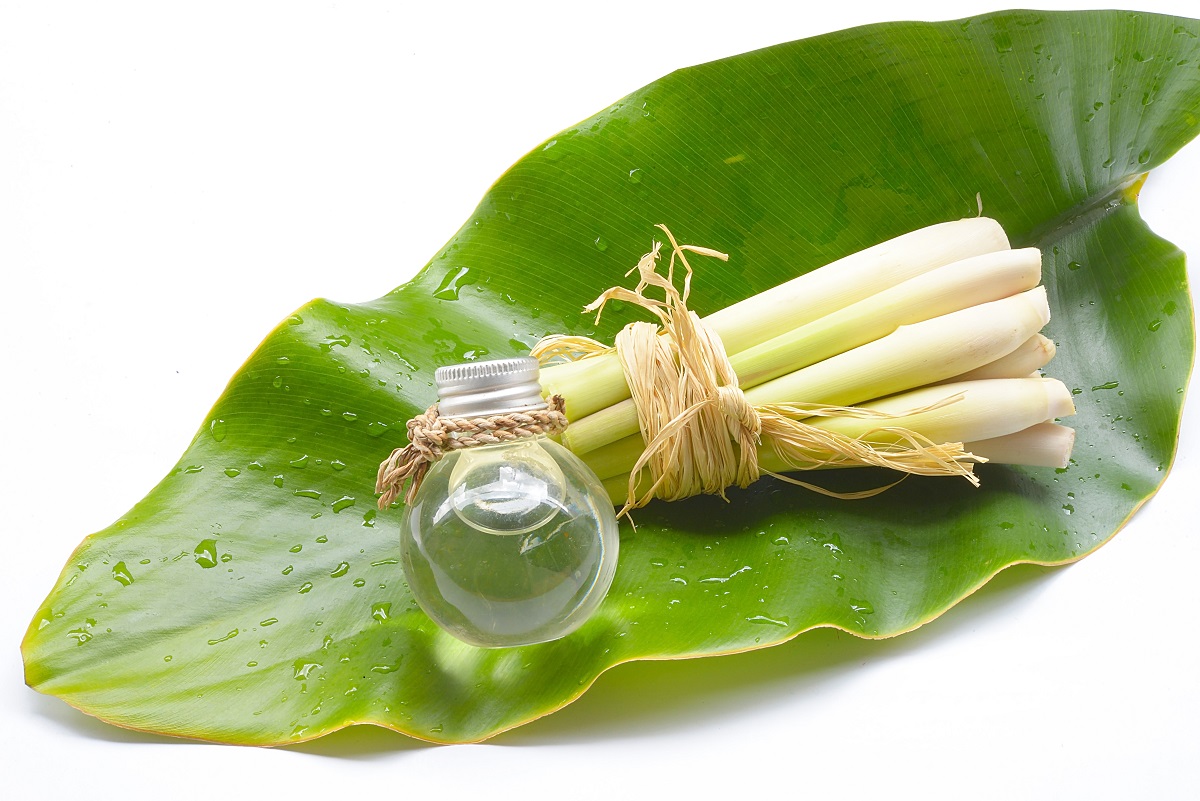Lemongrass is also referred to as Cymbopogon and belongs to the Poaceae family of grasses. Of 55 different varieties, the two most popular ones are Cymbopogon citratus and Cymbopogon flexuosus.
Though both can be used to produce essential oils, the former is largely used for culinary purposes, whereas the latter is more popular for use in essential oils and perfumes.
Lemongrass essential oil (Cymbopogon flexuosus), is derived from the steam distillation of the fresh or partly dried Lemongrass leaves.
The Lemongrass herb has stalks that are fibrous and smell much like lemons. In an essential oil, the scent of Lemongrass is fresh, sweet, grassy and light with a hint of lemon.
Lemongrass is native to tropical countries such as India, China, and Thailand where it has traditionally been used as a flavoring agent in foods, drinks, and desserts and for its ability to boost circulation and immunity.
Chemical constituents:
The main chemical constituents of Lemongrass essential oil are: Myrcene, Citral, Citronellal, Geranyl Acetate, Nerol, Geraniol, and Limonene.
Lemongrass is among the most popular essential oils used today for its effectiveness, health benefits, and a wide variety of applications.
Properties and Benefits of Lemongrass essential oil:
- Used medicinally, Lemongrass essential oil’s analgesic properties have been found to relieve muscle and joint pains caused by overexertion of muscles through exercise.
- It is known to boost energy and to reduce fever as well as headaches caused by viral infections such as the flu.
- It acts as an antiseptic, making it a beneficial ingredient in lotions and creams that prevent wounds from becoming infected.
- By alleviating abdominal pain, it can relieve stomach aches and ease spasms in the digestive tract. It works as a detoxifying agent by increasing perspiration, thus promoting the expulsion of bodily toxins through sweating.
- Due to its ability to reduce fever, Lemongrass earned the name “fever grass” in some cultures that made “fever teas” from Lemongrass leaves.
- Used cosmetically or topically in general, Lemongrass Oil can eliminate or inhibit the growth of harmful bacteria due to its citral content, which is known to have antimicrobial properties.
- Lemongrass essential oil can reduce inflammation due to its Limonene content, and it can slow down the flow of blood by contracting blood vessels.
- Lemongrass is most commonly used to relieve digestive issues, reduce bodily aches, pains, and high temperatures, and eliminate harmful bacteria.
Therapeutic Benefits:
Lemongrass essential oil strengthens the mind by relieving anxiety and boosting self-esteem, confidence, and hope. Its sedative effect on the mind relieves tension and promotes the sensation of being calm.
It is known to be beneficial for creating a feeling of being refreshed and renewed, for uplifting negative moods to prevent depression, and for relieving anxiety, stress, irritability, lethargy, nervousness, and insomnia. Paradoxically, it can maintain alertness and boost energy.
How to Use It:
- Diluted with a carrier oil and used topically, Lemongrass essential oil relieves muscle aches and body pains including headaches and discomforts associated with arthritis.
- It tones and purifies the skin while its anti-inflammatory properties relieve redness, itching, and swelling.
- Due to its antiseptic and astringent activities, Lemongrass essential oil makes an excellent addition to cosmetics that are meant to help achieve glowing and evenly toned skin. As a toner, it cleanses pores and strengthens skin tissues.
- Blending Lemongrass Oil into shampoo and body washes and rubbing it into the scalp and body may strengthen hair, stimulate its growth, and relieve itchiness and irritation on the scalp and skin.
- In aromatherapy, Lemongrass acts as a natural perfume and a non-toxic air freshener that creates a relaxing atmosphere and deodorizes unpleasant scents.
- Used in a diffuser, it is calming and relaxes the mind.
CAUTION: Make sure you use the pure essential oil from a good source rather than artificially fragrance oils.








